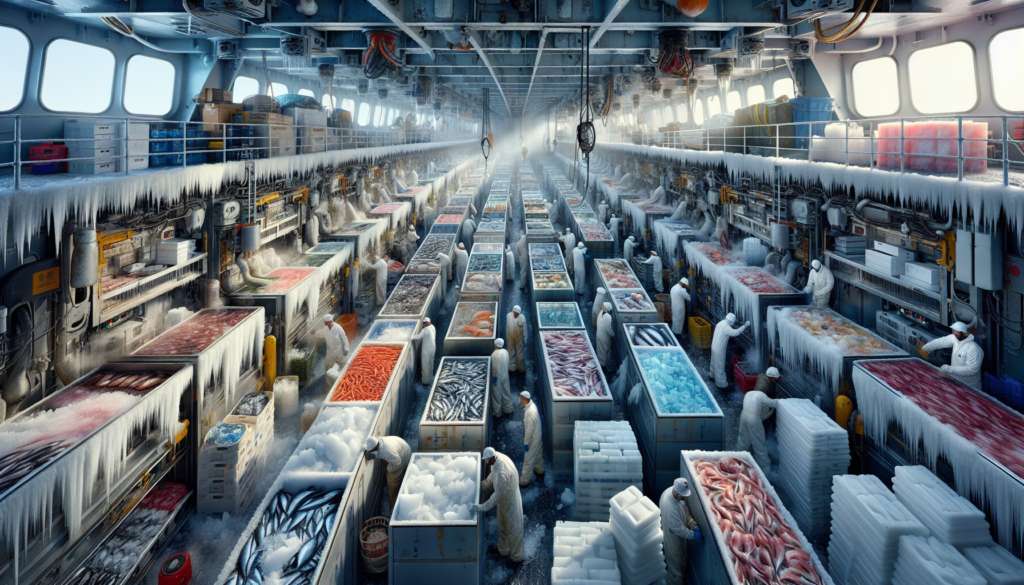The Ins and Outs of Marine Refrigeration
When we think of refrigeration, we often picture our kitchen appliances keeping our food fresh. But what about refrigeration on the high seas? Marine refrigeration plays a crucial role in preserving food, medical supplies, and other perishable items onboard ships, yachts, and even submarines. In this comprehensive guide, we will delve into the world of marine refrigeration, exploring its importance, applications, and the challenges it faces.
The History of Marine Refrigeration
Marine refrigeration has a long and interesting history, dating back to the early 19th century. The first attempts at refrigeration on ships involved using ice blocks packed with sawdust to keep food cold during long voyages. However, these methods were cumbersome and not very effective.
It wasn’t until the late 1800s that refrigeration technology began to advance significantly, thanks to the invention of mechanical refrigeration systems. These systems used compressors, condensers, and evaporators to cool air and create a refrigerated environment. This innovation revolutionized the shipping industry, allowing perishable goods to be transported long distances without spoiling.

The Importance of Marine Refrigeration
Marine refrigeration plays a vital role in ensuring the safety and well-being of crew members and passengers onboard ships. Proper refrigeration prevents foodborne illnesses by keeping perishable foods at safe temperatures. It also allows for the storage of medical supplies, vaccines, and other essential items that require refrigeration to remain effective.
Additionally, marine refrigeration is essential for maintaining the comfort of passengers and crew members. Air conditioning systems onboard ships rely on refrigeration technology to cool and dehumidify the air, creating a comfortable environment even in the hottest climates.
The Technology Behind Marine Refrigeration
Modern marine refrigeration systems are typically based on the same principles as traditional refrigeration systems. They use a compressor to compress refrigerant gas, which then flows through a condenser to release heat and cool down. The cooled refrigerant then passes through an evaporator, where it absorbs heat from the surrounding air or items, causing them to cool down.
One of the key challenges in marine refrigeration is designing systems that can withstand the harsh conditions at sea. Ships are constantly exposed to saltwater, humidity, and vibrations, which can damage refrigeration equipment. Engineers must carefully design and install refrigeration systems that are durable, reliable, and efficient in these demanding environments.

The Future of Marine Refrigeration
As technology continues to advance, the future of marine refrigeration looks promising. New innovations in refrigeration systems, such as the use of environmentally friendly refrigerants and energy-efficient designs, are being developed to reduce the environmental impact of refrigeration on ships.
Researchers are also exploring the use of renewable energy sources, such as solar power and wind power, to power marine refrigeration systems. By harnessing these sustainable energy sources, ships can reduce their reliance on fossil fuels and lower their carbon footprint.
Challenges and Controversies
Despite its many benefits, marine refrigeration also faces challenges and controversies. One of the main concerns is the environmental impact of refrigerants used in refrigeration systems. Some refrigerants, such as chlorofluorocarbons (CFCs) and hydrochlorofluorocarbons (HCFCs), are known to deplete the ozone layer and contribute to global warming.
To address these concerns, the shipping industry is transitioning to more eco-friendly refrigerants, such as hydrofluorocarbons (HFCs) and natural refrigerants like ammonia and carbon dioxide. These alternatives are less harmful to the environment and help reduce the industry’s carbon footprint.
Expert Opinions
According to marine refrigeration expert Dr. Sarah Johnson, “The maritime industry is making great strides in adopting sustainable refrigeration practices. By investing in energy-efficient systems and eco-friendly refrigerants, we can reduce our impact on the environment and create a more sustainable future for marine refrigeration.”
Common Misconceptions
One common misconception about marine refrigeration is that it is only used for storing food. In reality, marine refrigeration is essential for a wide range of applications, including cooling systems for electronics, medical equipment, and even air conditioning units.
Comparative Analysis
When comparing marine refrigeration to land-based refrigeration systems, there are several key differences to consider. Marine refrigeration systems must be specially designed to withstand the unique challenges of the marine environment, such as saltwater exposure, humidity, and vibrations. Additionally, marine refrigeration systems often rely on different cooling methods, such as seawater cooling systems, to dissipate heat and maintain proper temperatures onboard ships.
FAQs
1. What are the key components of a marine refrigeration system?
A marine refrigeration system typically consists of a compressor, condenser, evaporator, and expansion valve. These components work together to cool air or items onboard ships.
2. How can I maintain my marine refrigeration system?
To ensure the proper functioning of your marine refrigeration system, it is essential to perform regular maintenance, including cleaning filters, checking refrigerant levels, and inspecting for leaks. It is also recommended to have your system serviced by a qualified technician at least once a year.
To Wrap Things Up
Marine refrigeration is a critical technology that plays a vital role in the shipping industry. By understanding the importance, technology, challenges, and future implications of marine refrigeration, we can appreciate the complexity and significance of keeping things cool on the high seas.
Whether it’s preserving food, maintaining medical supplies, or creating a comfortable environment for passengers, marine refrigeration is indispensable for the safety and well-being of those onboard ships. As technology continues to evolve and environmental concerns grow, the future of marine refrigeration holds exciting possibilities for a more sustainable and efficient industry.



